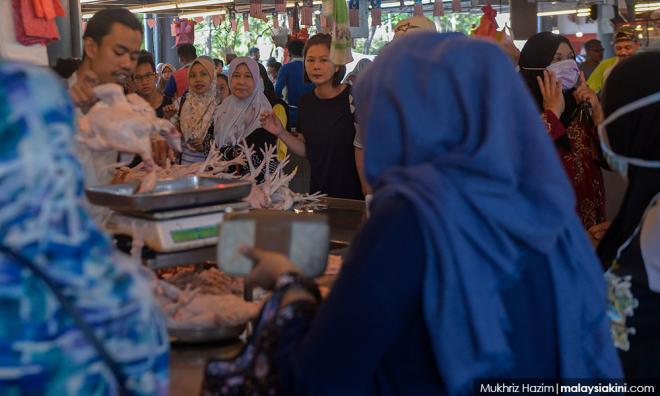
Published by EMIR Research, image from MalaysianTalk.
Recently, we have seen several forms of residential crime and this has had a detrimental effect on people’s well-being, particularly urban residents.
Thus, rakyat needs to be aware of crime and the impact of crime on them, and it is also necessary to have numerous ways to curb it for the related authorities.
The reform should also be made, as it seems that Malaysians do not continue to report the criminal cases because of less confidence in receiving their due justice from the legal system of the country.
Crime nowadays occurs in various ways or even randomly in Malaysia and involves murder, robbery, rape and theft of vehicles.
And crime may have greater impacts than what we thought.
This includes costs incurred, including direct costs and indirect costs, that involve crime apprehension, lower personal satisfaction rates, psychological problems, reduced quality of life and other non-monetary costs.
Additionally, coping with crime creates is a burden to the government expenditure because of the costs of increasing the number of police officers, imprisonment, delivering mental health treatment and coordinating campaigns and programmes against criminal activities.
This will also affect other industries as foreigners will refuse to choose Malaysia for their travel destination due to security concerns.
Urbanisation, mainly as a result of increasing population would have a huge effect on youth, especially on the negative side, as they are more likely to be involved in crime.
Owing to this, a total of 1,285 cases were reported with crime statistics impacting school students in 2018. Experts believed that the negative elements transmitted through the new technologies and the unbridled use of social media are the main causes of this issue.
Plus, experts also agreed that unemployment and crime are interlinked very closely.
This is backed by a study conducted by Norina Kanyo and Norizan Hj Md Nor, who stated that during the 1997 economic crisis where unemployment rates increased from 2.5 per cent in 1996 to 2.6 per cent in 1997, and 3.2 per cent in 1998, it was consistent with the rise in crime index at Daerah Timur Laut by 40.9 per cent in 1996 to 46.4 per cent in 1997.
This shows that it is simply because they face hardship that causes them to engage in crime during the economic crisis and it is not surprising that it will happen again as the economic crisis is expected to happen this year due to global recession as well as the impact of Covid-19 outbreak.
Crimes will affect them mentally and physically, including the victims, which will result in a deterioration in the quality of life. There would be uneasiness in society and that would not be perfect for the urban dwellers’ social development.
Based on a survey conducted by Multimedia University, it indicates that residents at crime-prone locations are becoming increasingly concerned about the growing crime cases in Malaysia and how it devalues their property.
As urban residents face different social problems due to population growth, increasing costs of living and inadequate living spaces, it is important to promote general safety and well-being, as well as to improve the quality of life of the rakyat.
Experts also noted that people need to be vigilant, as the illegal activity is typically prevalent in places where low-income populations are high.
Based on the Department of Statistics Malaysia, the highest crime index for states in 2018 is still the Federal Territory of Kuala Lumpur, followed by Selangor. In comparison, the largest crimes are vehicle theft with 35,953 cases, drug-related crime (25,267 cases) and robbery (10,271 cases).
This happened because urbanisation encourages rural people to migrate to cities and they are usually separated from their urban counterparts in terms of employment, work opportunities and access to urban housing, resulting in widespread criminal activities.
Amid numerous assurances that crime levels are within control in the country, people have felt increasingly unsafe and threatened in these past few years.
The major distinction between three kinds of neighbourhoods which are open neighbourhoods, secured neighbourhoods and gated neighbourhoods, might be one of the causes.
As the housing landscape has become more fragmented, urbanisation has socially segregated urban dwellers as more affluent people continue to split from people with lower incomes because the lower-income community is increasingly becoming stigmatised for the growing social issues and crime.
Yet surprisingly, many have paid less attention to crime.
It is not good for the country because any authorities should not neglect it even momentarily. After all, various crimes will continue to rise unnoticed.
Residents have also suggested improving safety and security by increasing residents’ involvement in preserving protection.
It can be achieved by neighbourhood watch groups and community policing, having neighbourhood-level security programmes, being self-confident and vigilant about their surroundings, and being able to act on any suspicious activity.
This is because some residents believe that home security features such as closed-circuit television (CCTV) cameras and alarm systems are the least effective measures since the next action is usually slow.
In fact, everyone should be aware of this and its implications by working together to spread positive vibes and making every effort to help the related authorities combat crime.
Farhan Kamarulzaman is Research Assistant at EMIR Research, an independent think tank focused on strategic policy recommendations based on rigorous research.

